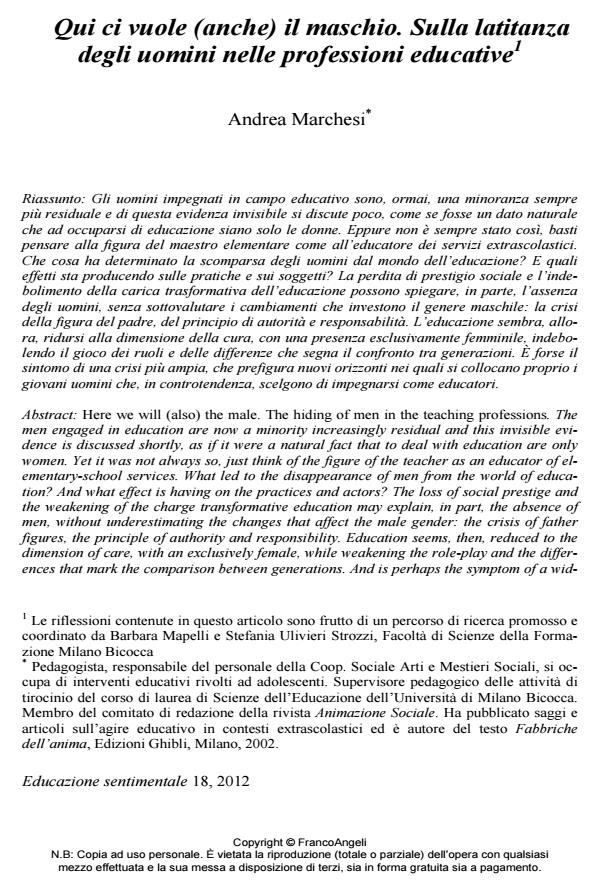Qui ci vuole (anche) il maschio. Sulla latitanza degli uomini nelle professioni educative
Journal title EDUCAZIONE SENTIMENTALE
Author/s Andrea Marchesi
Publishing Year 2012 Issue 2012/18
Language Italian Pages 12 P. 114-125 File size 233 KB
DOI 10.3280/EDS2012-018012
DOI is like a bar code for intellectual property: to have more infomation
click here
Below, you can see the article first page
If you want to buy this article in PDF format, you can do it, following the instructions to buy download credits

FrancoAngeli is member of Publishers International Linking Association, Inc (PILA), a not-for-profit association which run the CrossRef service enabling links to and from online scholarly content.
Here we will (also) the male. The hiding of men in the teaching professions. The men engaged in education are now a minority increasingly residual and this invisible evidence is discussed shortly, as if it were a natural fact that to deal with education are only women. Yet it was not always so, just think of the figure of the teacher as an educator of elementary- school services. What led to the disappearance of men from the world of education? And what effect is having on the practices and actors? The loss of social prestige and the weakening of the charge transformative education may explain, in part, the absence of men, without underestimating the changes that affect the male gender: the crisis of father figures, the principle of authority and responsibility. Education seems, then, reduced to the dimension of care, with an exclusively female, while weakening the role-play and the differences that mark the comparison between generations. And is perhaps the symptom of a wid-er crisis that foreshadows new horizons in which they placed their young men, in contrast, chose to commit themselves as educators.
Keywords: Education, care, gender, male, responsibility, conflict, future
Andrea Marchesi, Qui ci vuole (anche) il maschio. Sulla latitanza degli uomini nelle professioni educative in "EDUCAZIONE SENTIMENTALE" 18/2012, pp 114-125, DOI: 10.3280/EDS2012-018012